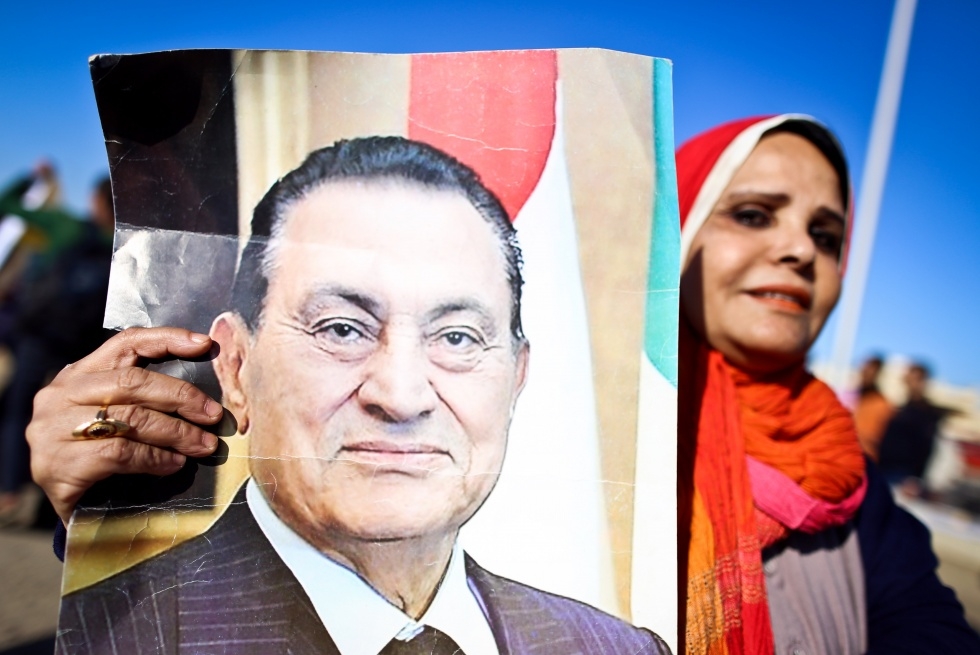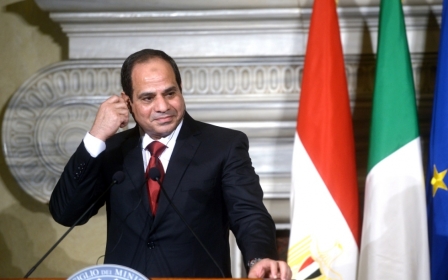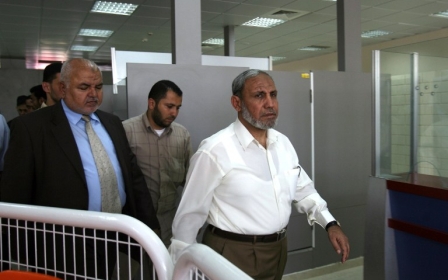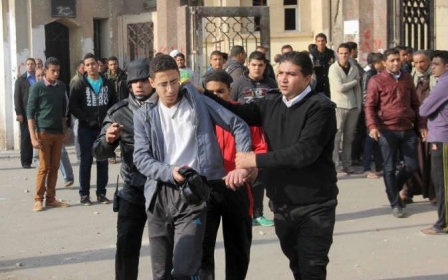Egypt's public prosecutor to appeal 'flawed' Mubarak verdict

Egypt's public prosecutor said on Tuesday it would appeal a court ruling that dropped a murder charge against ex-president Hosni Mubarak over the deaths of protesters during the country's 2011 uprising.
"The prosecutor general has decided to appeal," it said in a statement, after a Cairo court on Saturday ordered the dropping of murder and corruption charges against Mubarak, who ruled for three decades until being driven from office.
The prosecutor's office said it decided to appeal as "the ruling was marred by a legal flaw."
Mubarak remains imprisoned, despite having charges against him dropped, held at a military hospital serving the remainder of a three-year sentence in a separate corruption case.
Seven of Mubarak's security commanders, including feared ex-interior minister Habib al-Adly, were acquitted over the deaths on Saturday.
The Court of Cassation, the country's highest court, can now either confirm Saturday's ruling or decide to cancel it, in which case it would consider the case itself.
An appeals court had previously overturned an initial life sentence for Mubarak in 2012 on a technicality, ordering the retrial that saw the charges dropped on Saturday.
His lawyer has said the 86-year-old could now see an early release as he has already served two-thirds of his sentence when time held in preliminary detention since his arrest in 2011 is taken into account.
After Saturday’s verdict an estimated 2,000 protesters gathered near Cairo’s Tahrir Square chanting slogans against the country’s authorities. Security forces responded by using water cannon, teargas and live fire to disperse crowds – at least two people were killed and numerous other injured.
On Sunday students across the country rallied against Mubarak, with clashes reported at several universities, including Zagazig University northeast of Cairo.
Students Against the Coup (SAC) posted videos of students chanting at Cairo University.
President Abdel-Fattah al-Sisi, who was elected in controversial May elections, has refused to comment directly on Mubarak’s court cases but did outline his vision for the country.
“The new Egypt, which emerged from the 25 January [2011] and 30 June [2011] revolutions is on a path to establish a modern democratic state based on justice, freedom, equality and a renunciation of corruption,” he said in a statement issued late Sunday.
Former army chief Sisi overthrew the country’s first freely elected president Mohammed Morsi in a popularly-backed military coup in July last year. Since then he has outlawed Morsi’s Muslim Brotherhood and detained tens of thousands of government critics.
“It [Egypt] is on an aspirational path to the future and can never go back to the past,” he said.
Sisi has also instructed Prime Minister Ibrahim Mahlab to review the provisions for compensation for the families of "martyrs and those wounded in the revolution".
A 2011 government fact-finding panel said 846 people were killed in the 18-day revolution that toppled Hosni Mubarak.
Middle East Eye propose une couverture et une analyse indépendantes et incomparables du Moyen-Orient, de l’Afrique du Nord et d’autres régions du monde. Pour en savoir plus sur la reprise de ce contenu et les frais qui s’appliquent, veuillez remplir ce formulaire [en anglais]. Pour en savoir plus sur MEE, cliquez ici [en anglais].




